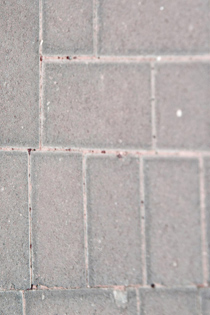Lévy, Jacques, Fauchille, Jean-Nicolas, Póvoas, Ana. 2018. Théorie de la justice spatiale. Géographies du juste et de l’injuste. Paris : Odile Jacob.
Mélanie Le Guen | 15.12.2018
This review of the book Théorie de la justice spatiale. Géographies du juste et de l’injuste attempts to identify some of the workings of the writing exercise that such a volume stands for. This six-hands work uses interviews conducted in France, Switzerland and Portugal to show that individuals are able to reflect space-justice interactions and express their own conceptions of justice, based on their experiences as inhabitants. It seriously deals with contemporary concerns, yet it does not resort to [...]
Julien Mattern | 23.11.2018
This article deals with the imaginary sources of the quantification of the world, through the typical case of electronic ticketing in urban public transport. The historical study of the process of technical innovation makes it possible to specify the concrete problems which arose for the actors and the ideological framework in which they sought to solve them. The "Navigo" case is at the crossroads of two complementary "dreams" regarding management : on the one hand, the idea of an autonomous [...]
À propos de la cartographie multi-strates des milieux et usages d’une rive estuarienne.
Baptiste Hautdidier | 15.11.2018
On the basis of two animated maps, the paper aims to contribute to the thinking of the mapmaking practices that are based on the overlay of various stratas. The examples suggest that the added value of such multilayered cartographies (that we choose to call glacis) is to be found in two complementary directions : that of helping to grasp the complexity of processes and stakes by building a lavish – if not blurred – general picture ; that of [...]
Anne-Claire Collier, Laura Péaud et Claire Vincent-Mory | 15.02.2018
L’injonction contemporaine à l’interdisciplinarité se révèle paradoxale. Elle s’accompagne, dans la pratique, de nombreuses difficultés théoriques et pratiques, comme l’ont montré, par exemple, Nicole Mathieu et Anne-Françoise Schmid à partir de la question de la modélisation (Mathieu et Schmid 2014). Ce constat liminaire a conduit à l’organisation d’une journée d’études sur les « Pratiques du pluridisciplinaire », le 12 juin 2015, à l'Université Paris Ouest-Nanterre La Défense, avec le soutien du laboratoire Sophiapol. L’objectif était de mettre en lumière les enjeux [...]
Nicole Mathieu | 07.02.2018
In charge of the conclusion of a seminar devoted to the evaluation of the multidisciplinary practices of young researchers with various disciplinary trainings, the author drives the reader of this paper into a confrontation of the postures and experiences of these "newbies" with her own, built in its long time of experience in interdisciplinarity. By identifying first the points of convergence – to get out of disciplinary rigidity and invent an assembling method –, she then detects those that deviate from [...]
Un itinéraire interdisciplinaire pour penser les inégalités.
Karine Ginisty | 01.02.2018
This paper discusses the construction of an interdisciplinary thesis on urban inequalities and spatial justice in Maputo. The author observes her incapability to use a theoretical framework of social justice to study two development projects in Maputo, the capital-city of Mozambique. In this city, experiences of justice and injustice seem to be reduced to silence, in the context of a lack of a public space, according to Habermas’s approach. Thus, the author developed an empirical and interdisciplinary take on [...]
Repenser l’efficacité rituelle et la subjectivation par le croisement disciplinaire.
Daphné Le Roux | 21.12.2017
If only civil weddings legally create the union between a husband and his wife, and if Catholic weddings are nothing but optional, how can we account for the ritual effectiveness of the latter ? How to think the effects actions have on the fiancés who perform them ? This article aims to highlight how an interdisciplinary approach can help us face these questions. On the one hand, using philosophical concepts – namely, here, subjectivation – allows us to understand [...]
A Synthesis.
PostCarWorld | 21.12.2017
This synthesis presents the mains conclusions of the PostCarWorld project. First of all, it describes the ambiguous situation of the car throughout the World today : continuation of growth and diffusion in emerging economies but, simultaneously, “unhipisation” of the car-culture in developed countries. Now, a fundamental aspect of the “car-society” is its object-driven character focused on the vehicle, generating around it its own material and immaterial environments. In contrast, the text defines what could be a beyond-car mobility society. [...]
Barthélemy Durrive et Julie Noack | 23.11.2017
This paper offers a comparative analysis of two interdisciplinary projects built on the same principle. The first experience lasted four years (from 2009 to 2013), the second started a year ago (January 2015). The comparison we propose focuses on the methodological difficulties we encountered in each project specifically, and the aim is to describe how they have been responded to. More precisely : the challenge we would like to emphasize in multidisciplinary research regards the constitution of a positive yet [...]
Théophile Lavault | 15.11.2017
The methodological crossovers within the construction process of a research subject must first question the way in which they influence the identity of subject itself; in other words the deeper relationship between a field of study and its subjects ; by the following question : which one, the field of study or the subject, influences the identity of the other ? The link between a subject and a field of study, or more precisely between a subject and a [...]

